Chickens can eat anything edible, from grass to small mammals. And it’s no surprise that they peck the eggshells and sip all the yolk and eggs.
You can identify egg eaters by noticing the leftovers of yolk on their beaks or faces.
So, before you cull your hens, try some practical ways to stop your chickens from eating their eggs.
1. Collect Eggs Frequently
Have you had a lax egg-gathering schedule?
If you skip collecting eggs for a couple of days, your birds will break eggs and eat them. They will form it into a habit by doing the same act without interruption.
So, you need to begin checking eggs multiple times a day for a week and then stick to a fixed once-a-day schedule, either morning or evening, to prevent it from happening again.
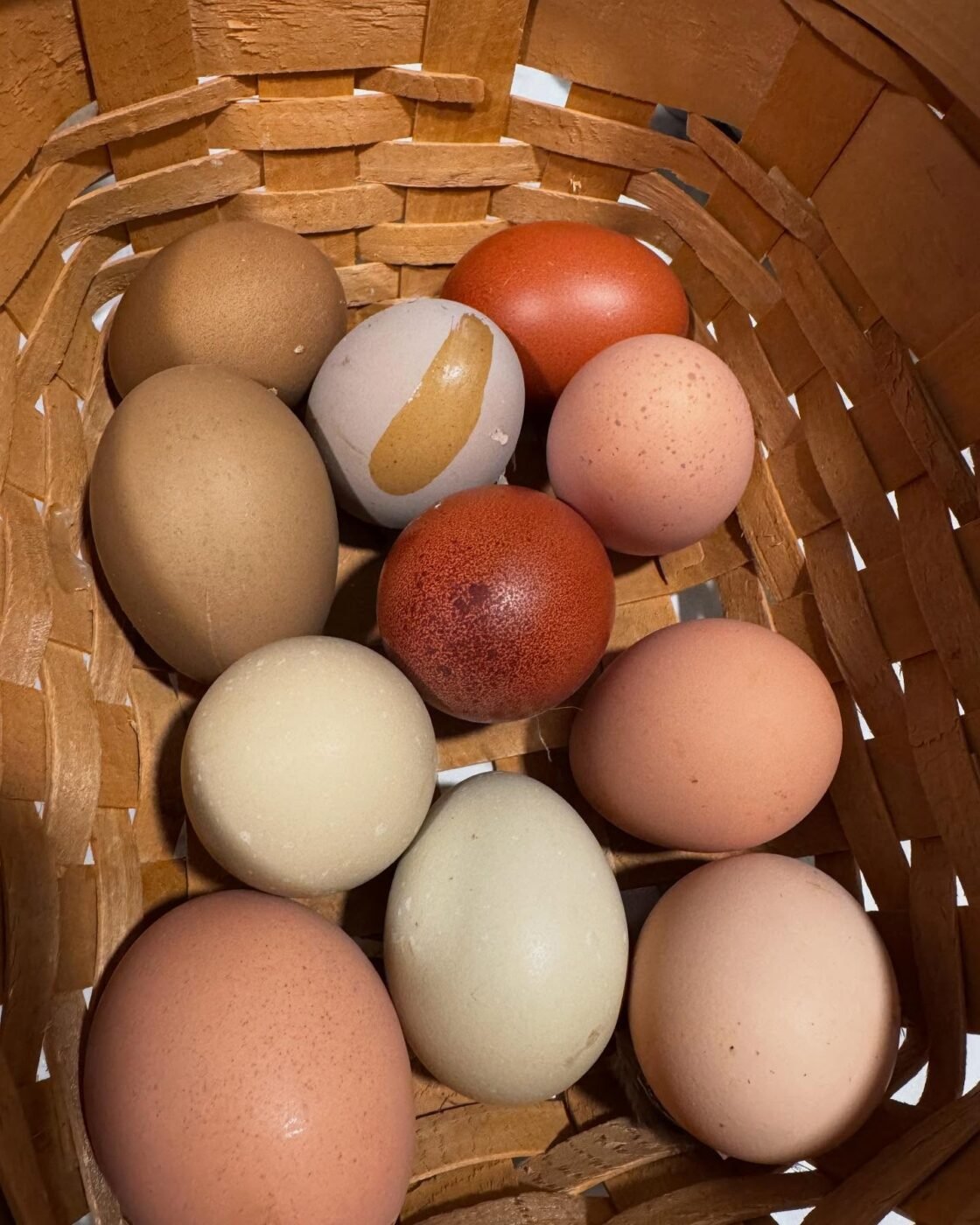
Try collecting eggs every 30 minutes or gather eggs 2–3 times daily. Set a routine for collecting eggs (morning, noon, and evening).
You can also grab the eggs as soon as your girls finish laying.
I know it’s not a practical solution for many keepers, but if you’re home or around the coop or have to be in the yard for a day, you can quickly fix this problem.
2. Provide Enough Nesting Boxes
If you have too many hens for the number of available nest boxes, they may eat eggs under stress.
So, you need to arrange at least 1 box per 3–4 hens for healthy production.
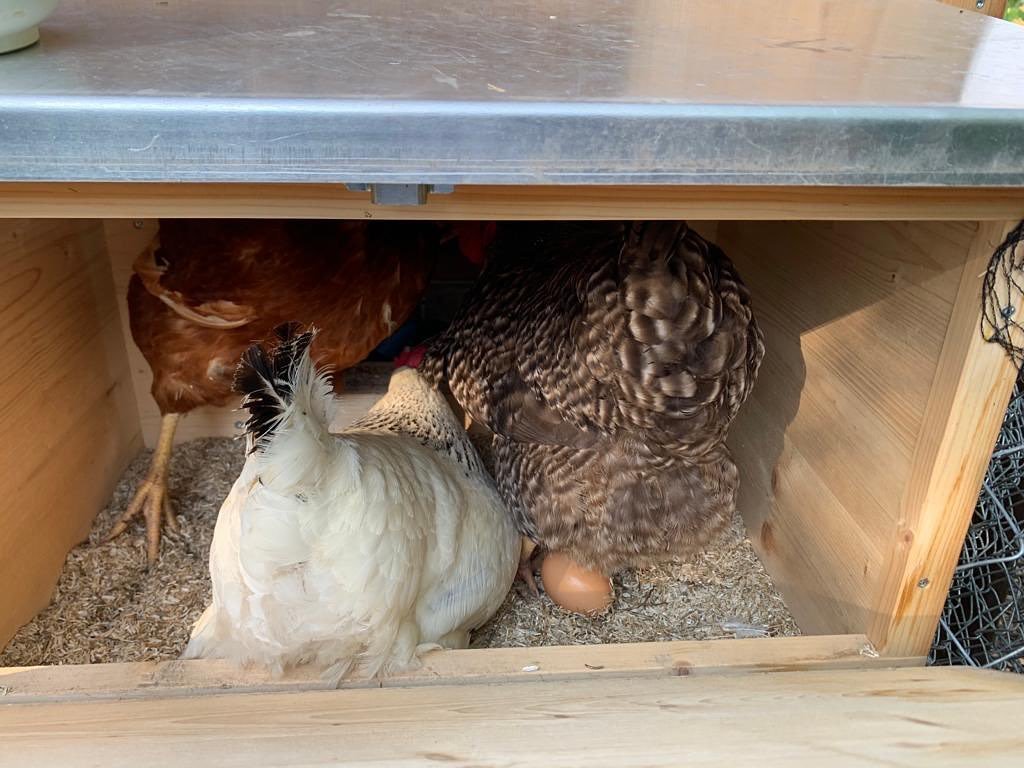
Also, they eat or trample the eggs laid on the ground without protection. So, you need to train your girls to lay in the nest.
For this, you can place an obstacle everywhere you find eggs on the ground so that they cannot continue laying there.
I recommend you use rollaway nesting boxes for a long-term solution. As soon as hens lay eggs in the nesting box, it rolls away into a collection chamber that birds can’t access.
And you can open that chamber from the outside back of the coop through a flap.
3. Keep Nests Dark and Private
Though bright light helps chickens access their nest easily, they find their eggs quickly after laying. So, you need to switch your lighting to dim.
Or make the area around the nest box as dark as possible. Avoid glass-front boxes where layers can see eggs clearly.
For this, you can use curtains, dark corners, and straw bedding. And keep the nest private, where only layers are allowed.
When it comes to a nest box, be sure to add nesting materials to provide cushioning. Fill the box with super fluffy stuff that eggs can slip down into without damage.
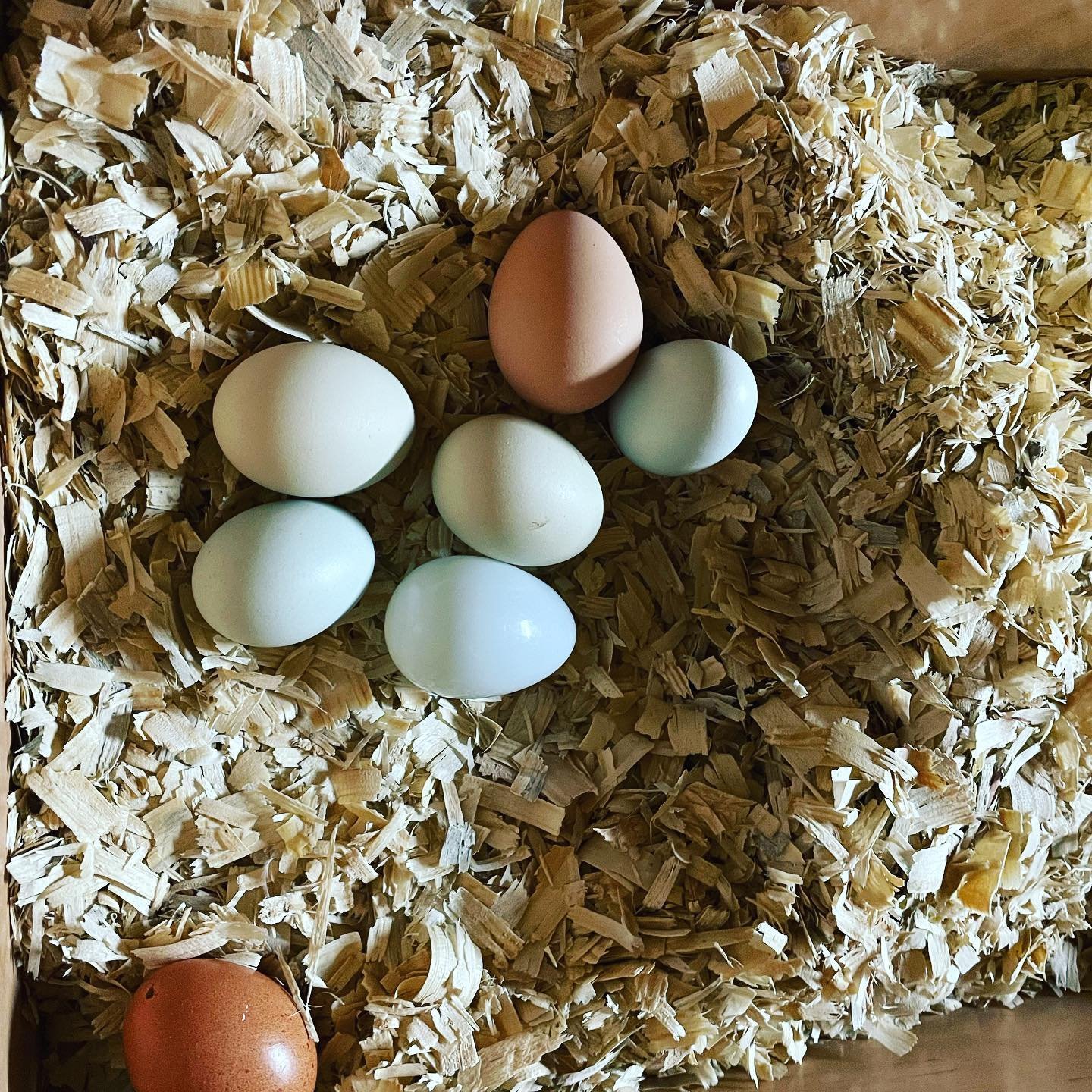
Use straw, hay, or shavings to protect eggs from breaking and cracking.
The soft bedding also helps avoid accidental breakage. Also, you need to change bedding regularly to prevent pest infestations.
4. Trick with Mustard
It’s one of my recently discovered tricks to stop chickens from eating eggs.
Poke holes in chicken eggs and remove the contents inside. You can make omelettes for yourself or preserve eggs for later use.
Anyway, then, fill the empty eggs with mustard. You can see how angry chickens with mustard on their face. They dislike the strong smell of mustard, especially yellow American mustard.
Chickens also won’t eat many garden plants, which you can grow around your chicken coop.
If you pick a milder mustard, they may eat it anyway.
5. Improve Chicken Nutrition
Are you sure about your chicken diet? Are they satisfied enough with their feed or feeding schedule?
Hungry flocks can eat anything that comes their way, but chickens often eat eggs when they suffer from malnutrition and crave protein or calcium.
So, you need to provide the poultry with supplements. The layers need balanced feed with 16–18% protein.
Many keepers make mistakes here! They offer their birds whole or somehow broken eggshells, which is a clear indication that chickens can eat eggs similar to their own.
Instead, you need to crush or grind eggshells or oyster shells into fine crumbs or powder to get calcium.
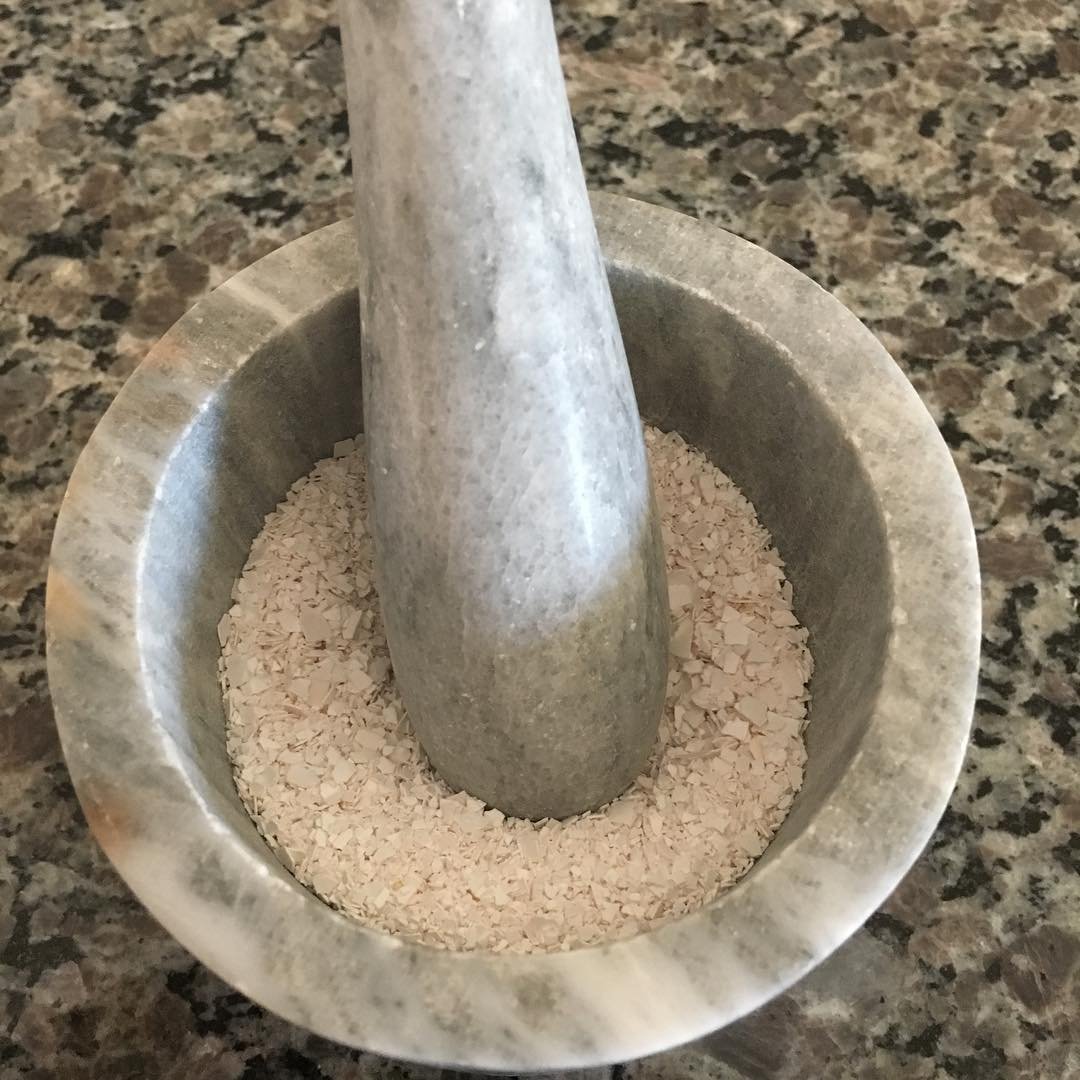
The dry plants, such as nettles, also provide calcium, so you can hang a bundle on the wall during winter for chickens to peck on.
Besides, you can give them high-protein snacks such as mealworms, peas, and sunflower seeds. Meat scraps, kelps, bugs, sprouted legumes, chick or broiler feed are also good sources of protein for chickens.
If you want to reduce your hen feed cost, you can consider homemade chicken feed.
Also, don’t forget to give them enough water.
6. Use Fake or Ceramic Eggs
I have seen my keepers using dummy eggs, such as wooden, plastic, or ceramic eggs, to deter birds from eating the real eggs.
You can also use golf balls, marbles, or stones. Once you finish collecting chicken eggs, you can replace them with fake eggs in the nest boxes.
When hens try to peck on these objects, they find them hard to break.
They will lose interest without success and finally give up after a certain point in time.
This trick works on both layers and broody. You can also train your pullets early in this way.
7. Give Chickens Enough Space and Entertainment
If your chickens are overcrowded or have nothing to do in the coop, you feel bored and stressed. So, they start pecking each other or eating anything, eggs, and even cardboard.
Make room for 4 sq. ft. per chicken inside the coop, and 8 – 10 sq. ft. in the run.
So, you need to give chickens more stuff to do. Double-check that they have enough gravel, powder of eggshells, or oyster shells for their craws.
To make them relax, you can arrange a nice chicken dust bath and indoor or outdoor roosts.

Besides, provide your birds with boredom busters such as chicken toys, hanging cabbage, and pecking blocks.
If possible, allow your chickens in the free-range setting. Don’t worry! You can have plenty of ways to prevent predators, and farm dogs can help you.
8. Collect and Remove Broken Eggs Immediately
Don’t leave the broken eggs in the nest and the coop. When hens taste yolks, they cannot resist eating their own eggs, and their habit strengthens from there.
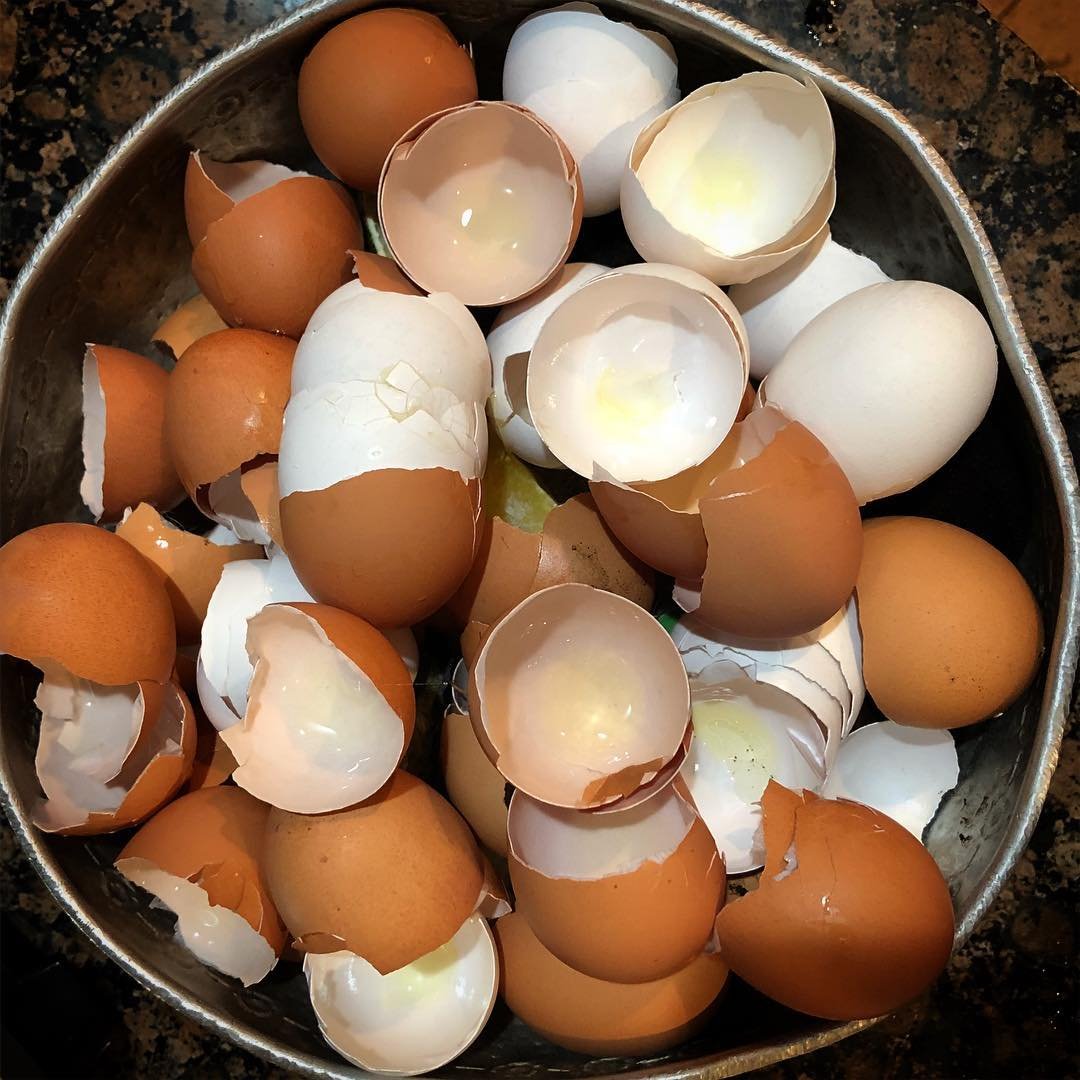
So, as soon as you see broken or poked eggs, collect them in the basket and clean the coop or area that has egg yolk or remnants fast.
This helps stop the chicken flock from learning egg-eating behavior.
9. Trim or Fit Beak Guards
Have you tried timing your chicken’s beak yet?
You can use a flashlight and large dog toenail clippers, so it will be easier for you to work. Do it carefully without harming your birds.
And do it only if the above ideas don’t work.
If a chicken’s top beak is slightly shorter than their bottom beak, it will hurt them when pecking or breaking the eggs open.
Besides, there are beak guards available at farm stores. You can make your chickens wear these when they are near the nest box or eggs.
10. Separate Habitual Egg-Eaters
Particularly stubborn chickens (I often find older hens doing this) won’t stop once the habit has set in.
In this case, you can temporarily separate repeat egg eaters for a week or two. Perhaps they might forget about eating yolks after getting enough food elsewhere.
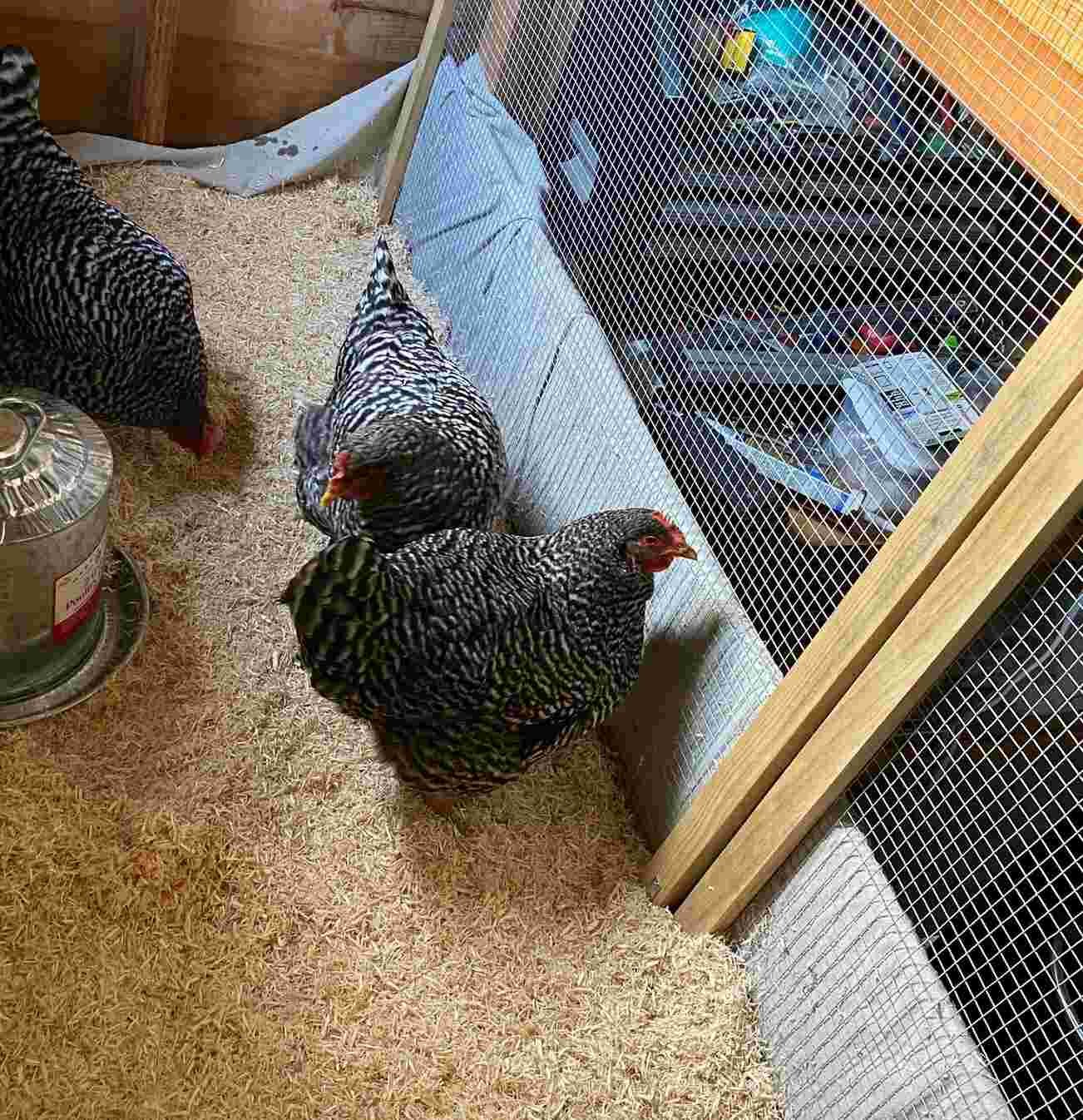
If they won’t stop eating eggs whatsoever, you can either rehome your chickens or make them table birds for dinner.
That’s the last resort!
Final Thoughts
When one hen starts eating, she also encourages or teaches other chickens to do the same. It won’t take time for chickens to finish the whole yield of the season if not checked.
They might break eggs accidentally and such the content out, from where the habit forms.
So, it is necessary to stop your chickens from eating their eggs as soon as possible.
There can be several other reasons for chickens poking eggshells. For example, hens, especially broody hens, often break their eggs and eat them if you don’t open the coop in the early morning.
So, you need to identify the issue and address it accordingly.




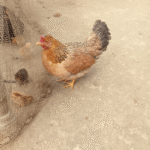


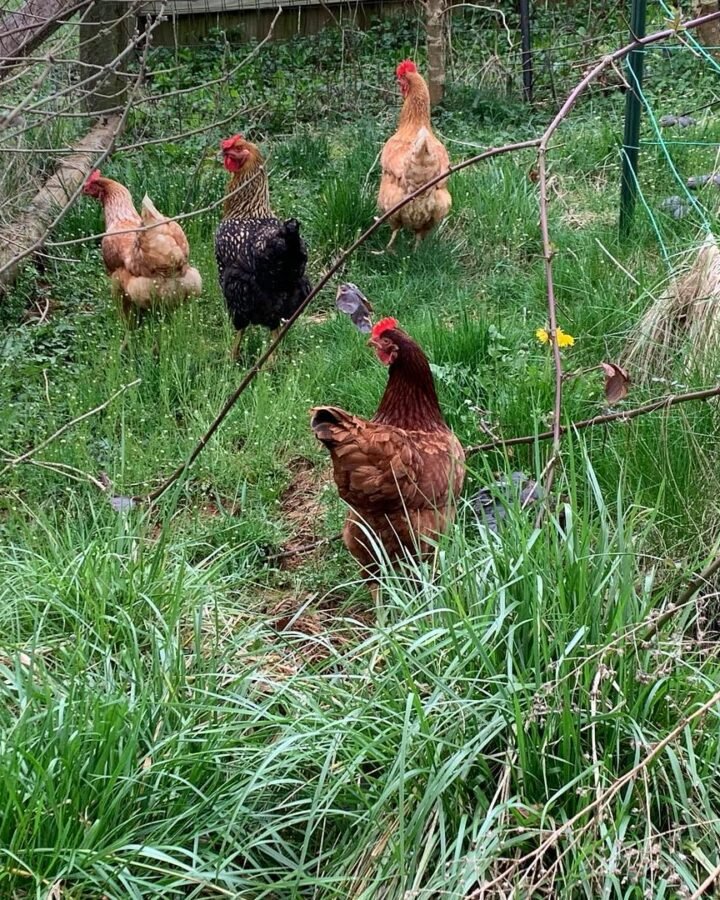


Leave a Reply